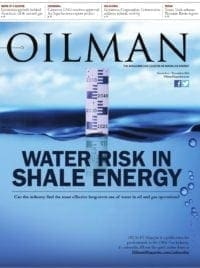Texas Tech was commissioned by the Permian Basin Petroleum Association to prepare the report, “Economic Impact of the Permian Basin’s Oil and Gas Industry.”
Bradley Ewing, a professor of energy economics in the Texas Tech University Rawls College of Business, co-authored the report, which shows the region is now one of the biggest oil and gas producers in the world.
The report defined the Permian Basin as the area in Texas stretching from Hale County north of Lubbock to the Rio Grande Valley and into parts of southeastern New Mexico. It includes the Delaware and Midland basins as well as several known resource plays, such as Wolfberry, Spraberry, Bone Springs, San Andres, Clearfork, Cline Shale, and Wolfcamp.
According to the report, the Permian Basin’s oil and gas industry creates and sustains more than 546,000 jobs, with an economic output of $137.8 billion, and creates more than $71.1 billion to the gross state products of both Texas and New Mexico.
In Texas alone, the Permian Basin is estimated to produce and sustain more than 444,000 jobs with $113.6 billion in economic output, and contribute more than $60.2 billion in gross state product. For New Mexico, the
Permian Basin is estimated to produce and sustain more than 94,000 jobs with $22.7 billion in economic output and more than $10.2 billion contributed to the gross state product.
The report also found that, since Dec. 27, 2013, the number of horizontal, oil-directed rigs in the Permian Basin rose by 63%, which accounts for half of the total increase in those types of rigs in the U.S.
Earlier this year, Ewing helped prepare another report for the petroleum industry on the economic impact the Texas oil and gas pipeline industry has on the state.
In addition to Ewing, other collaborators on the report included Marshall C. Watson, department chair for Texas Tech’s Bob. L. Herd Department of Petroleum Engineering, Terry McInturff, professor and chair of the Rawls College of Business Area of Energy, Economics and Law, Russell McInturff, a professor in the Area of Energy, economic and law, as well as petroleum engineering doctoral students Tariq Ali, Roland O. Ezewu and Ibegbuna Ezisi.





